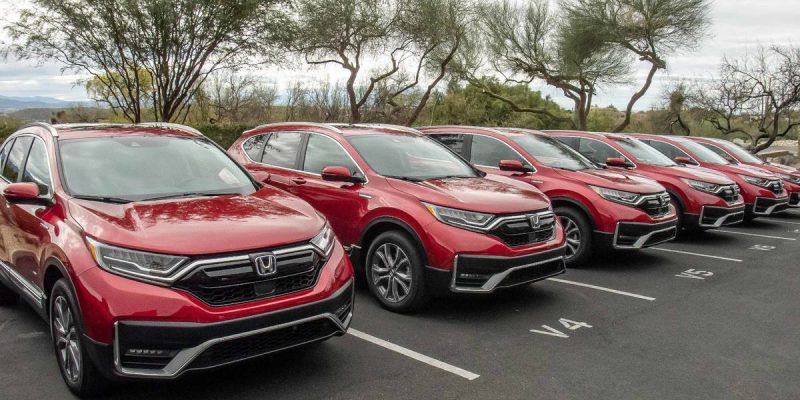How to Buy Fleet Vehicles: A Comprehensive Guide for Businesses

For businesses that rely on transportation, whether for deliveries, sales, or services, having the right fleet vehicles is essential. Buying fleet vehicles isn’t as simple as purchasing a single car—it involves careful planning, cost analysis, and understanding your company’s specific needs.
In this article, we’ll walk you through the process of how to buy fleet vehicles, covering everything from identifying requirements and financing options to negotiating deals and managing your fleet effectively.
What Are Fleet Vehicles?
Fleet vehicles are a group of vehicles owned or leased by a business to carry out its operations. These vehicles can range from small sedans for sales teams to heavy-duty trucks for logistics and deliveries.
Common Types of Fleet Vehicles
- Passenger Cars: For sales teams or administrative needs.
- Vans: Ideal for delivery services, catering, or plumbing.
- Trucks: Used in industries like construction, logistics, and landscaping.
- Specialty Vehicles: Customized vehicles for specific tasks, such as refrigerated trucks or ambulances.
Steps to Buy Fleet Vehicles
Assess Your Business Needs
Before you begin shopping, identify what your business requires:
- Purpose: Are the vehicles for deliveries, client visits, or transportation of goods?
- Capacity: How many vehicles do you need?
- Type: What kind of vehicle best suits your operations (e.g., vans, trucks, or electric vehicles)?
Set a Budget
Establish a clear budget for your fleet. Consider:
- Upfront Costs: Purchase price, registration, and insurance.
- Operational Costs: Fuel, maintenance, and repairs.
- Financing Options: Determine if you’ll buy outright, lease, or finance.
Research Vehicle Options
Explore models and brands that align with your business needs. Key factors to consider include:
- Fuel Efficiency: To reduce operational costs.
- Durability and Reliability: Vehicles that can withstand heavy usage.
- Resale Value: Choose vehicles with good resale potential for when it’s time to upgrade.
Decide Between New or Used Vehicles
- New Vehicles: Come with warranties and the latest technology but cost more upfront.
- Used Vehicles: Lower initial cost but may require higher maintenance.
Compare Fleet Deals
Many manufacturers and dealerships offer fleet-specific deals. Look for:
- Discounts on bulk purchases.
- Maintenance packages included in the deal.
- Incentives for eco-friendly or electric vehicles.
Explore Financing Options
Consider the following ways to finance your fleet:
- Outright Purchase: Best if you have sufficient capital.
- Leasing: Ideal for businesses wanting lower monthly payments and flexibility to upgrade.
- Loans: Secure financing from banks or lenders to buy your fleet.
Negotiate Terms
When working with dealerships, negotiate:
- Bulk purchase discounts.
- Extended warranties.
- Additional perks like free servicing or accessories.
Register and Insure Your Fleet
Ensure all vehicles are legally registered and insured before they hit the road.
- Fleet Insurance: Covers multiple vehicles under one policy, often at a lower cost than insuring individually.
- Liability Coverage: Protects your business in case of accidents.
Plan for Fleet Management
After purchasing your vehicles, establish a system to manage and maintain them:
- Maintenance Schedule: Regular checks to ensure reliability and reduce downtime.
- Tracking Technology: GPS and telematics to monitor vehicle usage and performance.
- Driver Training: Train employees to operate vehicles efficiently and safely.
Pros and Cons of Buying Fleet Vehicles
Pros
- Cost Savings: Bulk discounts and reduced operational costs.
- Brand Consistency: A uniform fleet enhances brand visibility.
- Increased Efficiency: Tailored vehicles for your business needs improve productivity.
Cons
- High Initial Costs: Purchasing multiple vehicles can strain your budget.
- Maintenance Responsibilities: Owning a fleet requires ongoing maintenance and management.
- Depreciation: Vehicle values decrease over time, impacting resale potential.
Tips for Buying Fleet Vehicles
Focus on Reliability
Choose brands and models known for durability and low maintenance requirements.
Prioritize Fuel Efficiency
Opt for vehicles with good mileage or consider hybrid/electric options to reduce fuel costs.
Test Before Buying
Test-drive vehicles to ensure they meet your performance and comfort expectations.
Consult a Fleet Specialist
Work with a fleet advisor or dealership representative specializing in fleet sales for tailored recommendations.
Think Long-Term
Plan for the entire lifecycle of your vehicles, from acquisition to resale or replacement.
Conclusion
Buying fleet vehicles is a significant decision for any business. From assessing your needs and setting a budget to choosing the right vehicles and negotiating deals, every step requires careful consideration. By following the strategies outlined in this guide, you can build a fleet that enhances your business operations while staying cost-efficient.
Ready to upgrade your business with a fleet? Start planning today and take your company’s efficiency and professionalism to the next level!
FAQs
1. What is the best way to finance fleet vehicles?
Leasing is ideal for businesses looking for flexibility, while outright purchases are better if you have the capital to invest upfront.
2. How many vehicles qualify as a fleet?
Typically, a fleet consists of two or more vehicles used for business purposes.
3. Can small businesses benefit from fleet vehicle programs?
Yes, many manufacturers offer fleet deals tailored to small businesses, including discounts and financing options.
4. How do I maintain my fleet?
Implement a regular maintenance schedule, train drivers, and use fleet management software for tracking and optimization.
5. Are electric fleet vehicles a good investment?
Yes, electric vehicles can reduce fuel costs and emissions, and many governments offer incentives for eco-friendly fleets.
Also read: Quotation Board: Understanding Its Role in Financial Markets











